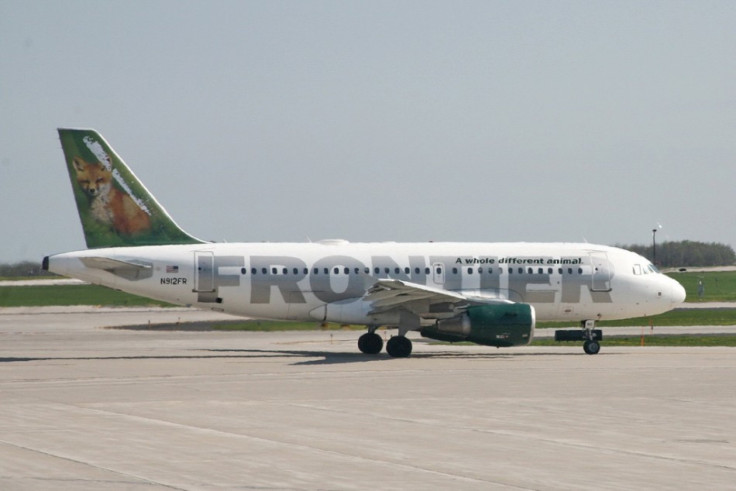Drunk Pilot? Frontier Airlines Flight Delayed in Omaha amid Suspicions

A drunk pilot delayed a Frontier Airlines flight from Omaha to Milwaukee by two hours Thursday.
The pilot, who was not arrested, was kept from boarding the plane after a hotel shuttle bus driver told police that he thought the pilot may have been drunk and unfit to take control of Flight 1894, due to take off at 6 a.m.
Passengers waited in the terminal during the delay and the plane took off two hours later after another pilot was called in.
Because this is a personnel issue, we can't and won't comment on specifics other than to say that because of concern of the crew member, that crew member was replaced, Frontier representative Lindsey Carpenter wrote in a statement emailed to IBTimes. Appropriate action will be taken with the crew member when our investigation is complete.
Carpenter added that Frontier and Chautauqua have a zero-tolerance policy for drugs and alcohol that has resulted in a 100% saftey record for both carriers.
Frontier Airlines reported the incident to the FAA, as required, and said it is investigating claims that the pilot was impaired.
Under a rule called bottle to throttle, airline pilots are prohibited from drinking eight hours before flight. They are also prohibited from having a blood alcohol content of .04 or higher.
There have been 134 cases of allegedly drunk pilots reported over the last 12 years in the U.S., according to reports.
Thursday's 29-passenger Frontier flight was a regional route operated under a code share agreement with Chautauqua Airlines.
Regional airlines have come under harsh scrutiny ever since the 2009 crash of Continental Flight 3407, operated by Colgan Air.
The subsequent investigation of the crash revealed a relatively unknown trend at the time: Major airlines have outsourced a large number of their flights to little-known regional airlines. In fact, regional airlines account for over half of all scheduled domestic flights in the United States and, according to a PBS Frontline investigation, are responsible for the overwhelming majority of commercial airline accidents in the past decade.
The regional airlines are not held to the same standards as the major carriers. An investigation into the crash of Flight 3407 by the National Transportation Safety Board (NTSB), completed in 2010, identified pilot error as the major factor. It was revealed that the first officer on 3407 made less than $16,000 the previous year and the captain had failed five flight tests with Colgan and received inadequate training. The NTSP investigation unearthed a wide range of factors that may have contributed to the tragedy, including training standards and odd sleeping and commuting patterns of the staff.
The FAA announced in December that it had finalized a long-awaited regulation to update policies for pilots, namely in the area of pilot fatigue. Transportation Secretary Ray LaHood called the rule a landmark safety achievement that would address the basic business demands of present-day flying and the physical toll of a long day's work.
The new regulation did not alter existing rules on pilot alcohol levels.
READ ALSO: Who's Flying Your Plane?
© Copyright IBTimes 2024. All rights reserved.












